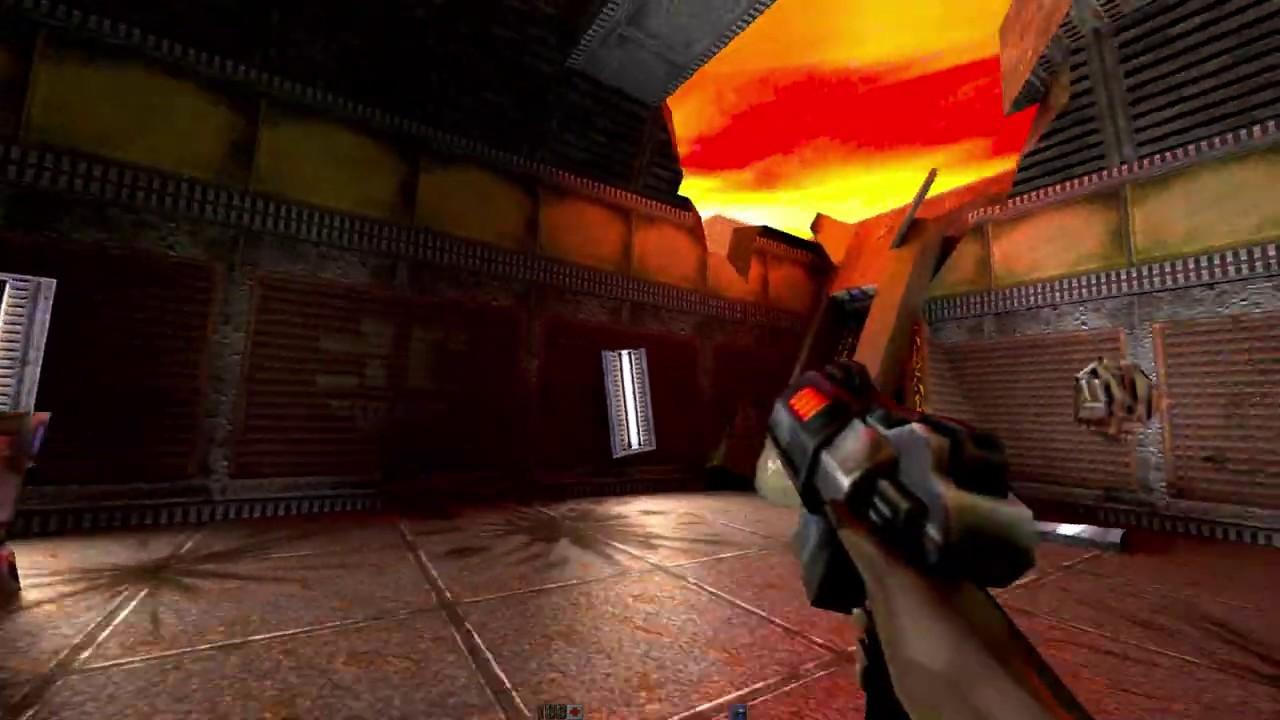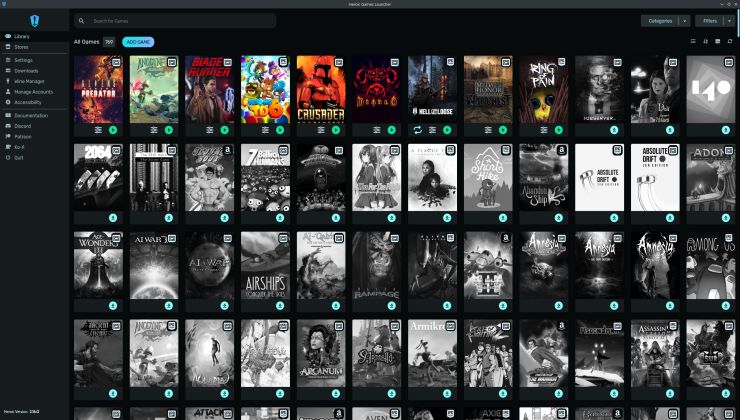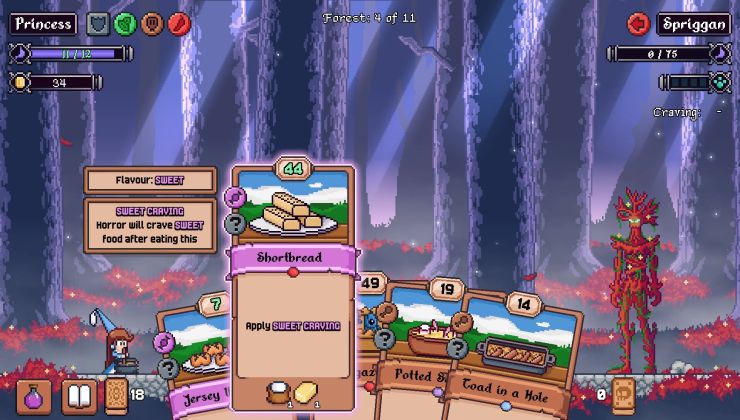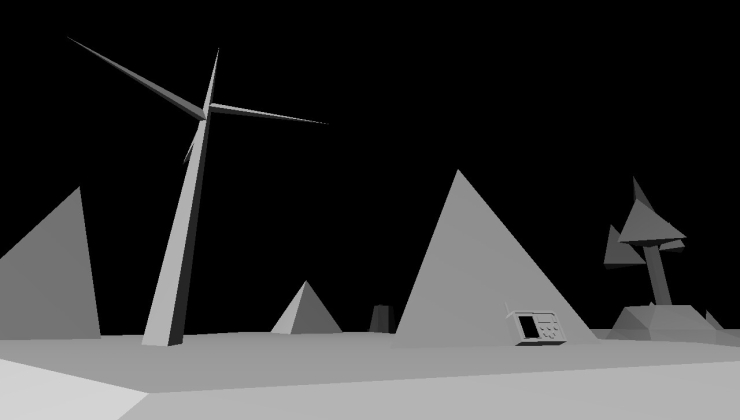If you have one of the more recent NVIDIA RTX graphics cards, here's an interesting project for you to try. Q2VKPT from developer Christoph Schied implements some really quite advanced techniques.
As the developer describes:
Q2VKPT is the first playable game that is entirely raytraced and efficiently simulates fully dynamic lighting in real-time, with the same modern techniques as used in the movie industry (see Disney's practical guide to path tracing). The recent release of GPUs with raytracing capabilities has opened up entirely new possibilities for the future of game graphics, yet making good use of raytracing is non-trivial. While some games have started to explore improvements in shadow and reflection rendering, Q2VKPT is the first project to implement an efficient unified solution for all types of light transport: direct, scattered, and reflected light (see media). This kind of unification has led to a dramatic increase in both flexibility and productivity in the movie industry. The chance to have the same development in games promises a similar increase in visual fidelity and realism for game graphics in the coming years.

Direct Link
It requires the VK_NV_ray_tracing extension, looking over recent NVIDIA driver releases it looks like you would need at least 410.57 which added support for it.
See more on the official site with the source code on GitHub.
I will admit, this is all going a little bit over my head, but the idea of it sounds very interesting.
Anyway, does it work only on Nvidia RTX cards?
I couldn't compile this.
Anyway, does it work only on Nvidia RTX cards?
That's what I hope for. I have a 8gb Polaris card. I know that
Battlefield 5 is out of the question, but I'm hoping the RADV
developers would rig something together.
Last edited by sr_ls_boy on 18 Jan 2019 at 2:50 pm UTC
does it work only on Nvidia RTX cards?
Yes. It depends on an Nvidia-only Vulkan extension that has only been implemented (so far?) for the RTX series cards.
I couldn't compile this.
Anyway, does it work only on Nvidia RTX cards?
I think so. Nvidia said that they were using specific hardware to speed up ray tracing.
Last edited by x_wing on 18 Jan 2019 at 3:01 pm UTC
I couldn't compile this.
Anyway, does it work only on Nvidia RTX cards?
I think so. Nvidia said that they were using specific hardware to speed up ray tracing.
It says in the article that it uses VK_NV_ray_tracing, which only works on RTX cards. Khronos is doing a generic one though, which could be implemented for other cards using compute shaders. Whether that will actually work or be fast enough remains to be seen though.
Oh, and this also makes my point about SDKs - it should be illegal to ship a game without an SDK so that the community can keep the game running in perpetuity. It should also be mandatory that the source code be uploaded in it's entirety ten years from the latest patch or upon bankruptcy of the company. In fact I would apply this to all software, not just games.
I couldn't compile this.
Anyway, does it work only on Nvidia RTX cards?
No, it very specifically only works on a NVIDIA 2080ti or 2080 because it uses the ray tracing core to do the path tracing. Apparently the math is almost identical.
And looking at this game, it strikes me that we really need to write a Vulkan renderer for Deus Ex because as it stands the latest currently available is for DirectX 10. I have been thinking about a career change, maybe I'll take up coding.
Python -> C/C++ -> Vulkan.
Last edited by jarhead_h on 18 Jan 2019 at 5:55 pm UTC
silmeth@silmeth-desktop:~% vulkaninfo | rg tracing
VK_NV_ray_tracing : extension revision 2So I’d guess it should run (or at least try to), with probably very shitty performance. The question is how well is the extension implemented in software for older cards without the new hardware to support it.
Last edited by silmeth on 19 Jan 2019 at 8:11 pm UTC
So I’d guess it should run (or at least try to), with probably very shitty performance. The question is how well is the extension implemented in software for older cards without the new hardware to support it.
I'm not so sure the Vulkan extension is implemented for non-RTX cards all. The extension may exist in the driver, but it may not do anything. Only one way to be sure. There is OptiX, which implements similar tech using CUDA. On this RTX mode is 1.5x to 2x faster than plain CUDA. Which suggest even older GPUs shouldn't be half bad at this.
Last edited by logge on 20 Jan 2019 at 6:06 am UTC
Last edited by Dragunov on 20 Jan 2019 at 7:26 pm UTC










 How to set, change and reset your SteamOS / Steam Deck desktop sudo password
How to set, change and reset your SteamOS / Steam Deck desktop sudo password How to set up Decky Loader on Steam Deck / SteamOS for easy plugins
How to set up Decky Loader on Steam Deck / SteamOS for easy plugins
See more from me